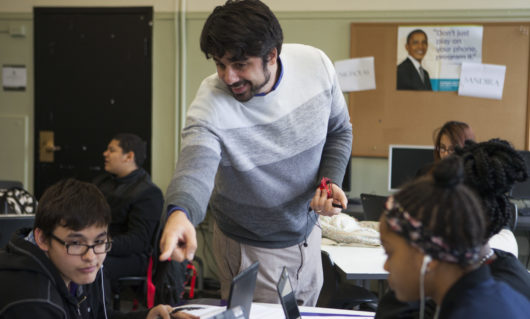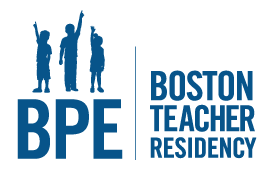We spearheaded a new movement in education reform by training teachers in the areas of highest need. Our strategies have resulted in a reversal in trends in teacher retention among our graduates.

Most importantly, our graduates have had significant impact on student achievement, all the while receiving positive feedback from administrators across the city.
Recognition
The National Council on Teacher Quality (NCTQ) rated BTR’s residency program as an “A” in clinical practice; only seven programs received this rating.
Scale
- We’ve prepared more than 740 new teachers since 2003.
- 18,000 BPS students are served by our graduates each year.
- Our residency has been replicated in 35 cities and 3 countries.
Diversity
- We’re committed to graduating cohorts that are 50% of color. Currently, 48% of BTR grads are teachers of color and 38% are African-American or Latino.
- In our most recent graduating cohort (Spring 2023), 70% of residents were people of color and 44% identify as Black or Latino.
- In 2020, The National Council on Teacher Quality (NCTQ) graded BTR an “A” for our commitment to significantly diversity the teacher workforce in Massachusetts.
Placement and Retention
“Without BTR I would not still be here, in BPS” – BTR grad
- 71% of our graduates remain teaching in BPS through year six, compared with 51% of their peers.
- 37% of graduates teach special education or English as a Second Language.
- 55% of secondary graduates teach secondary math or science.
Effectiveness
During the 2014-15 school year, BTR grads were twice as likely as other Massachusetts teachers to be rated “Exemplary” on state evaluations. BTR grads are four times more likely than MA teachers to be rated “Exemplary” in their 4th year of teaching.*
(Massachusetts Department of Elementary and Secondary Education, 2016. * data only include graduates of MA teacher preparation programs.)


